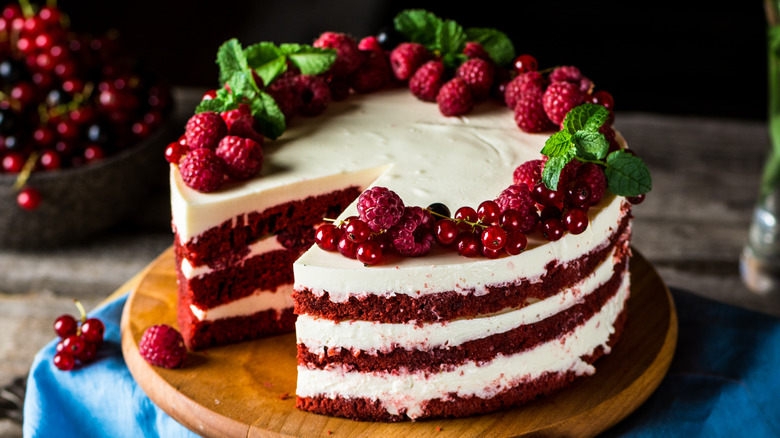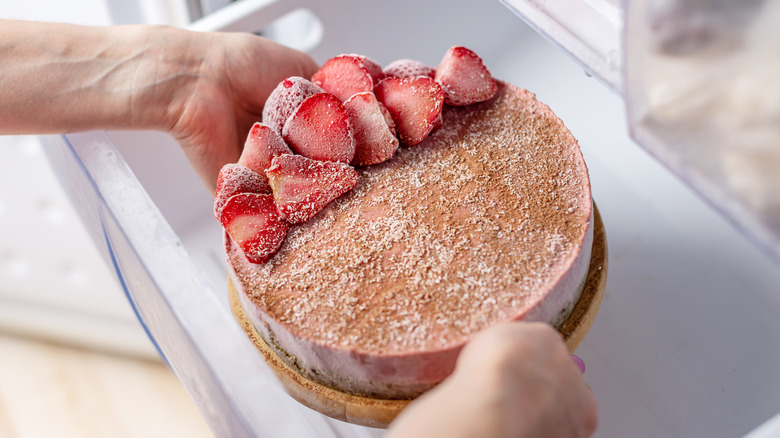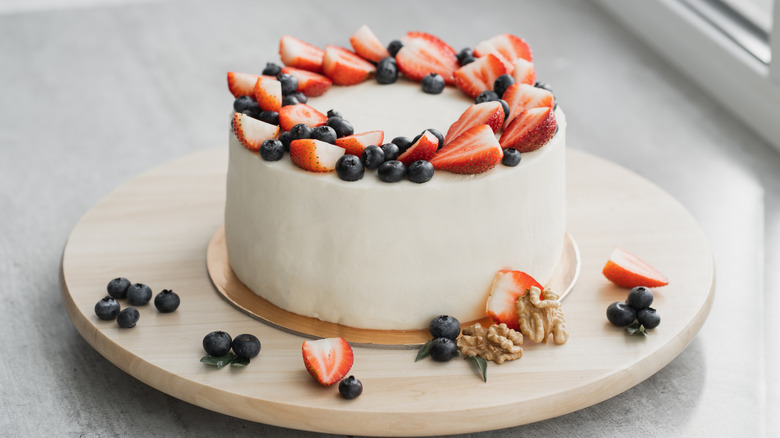The Absolute Best Ways To Keep Cake Fresh
Cake is not something we look at today in the windows of bakeries or dressed up for weddings and consider ancient. But, they really are some of the oldest baked goods in the world, dating back thousands of years. Even the name "cake" is derived from the Old Norse word "kaka," which originated around the thirteenth century (via Food Timeline).
These days, we tend to shy away from old-timey fruit cakes and have embraced desserts like the cinnamon flop, coffee crunch, and tiramisu cakes which we can make now thanks to the easy and inexpensive accessibility of refined sugar and other such ingredients. Cake has thousands of years of history under its belt, and yet one thing hasn't changed, cakes can still go stale. Why do cakes go stale? Well, according to Good Food, because cakes are made using starchy flour, it absorbs the liquid ingredients in a cake, but when a cake begins to age, the starch releases all that liquid and crystallizes, which causes the cake to harden. This is something bakers try to put off as long as possible.
How to store unfrosted cake
Once you've successfully baked a cake, your main priority must be to keep it fresh. After cakes have completely cooled, if they are not properly stored, they can lose freshness overnight, so it is imperative that once your cake is safe to store, you wrap it up (via LiveStrong).
If you are handling an unfrosted cake, you're in luck! After baking your cake and leaving it to rest on a cooling rack until it is cool to the touch, you can simply cover it air-tight in plastic wrap and heavy foil to pop it in the freezer for up to six months, according to Pillsbury Baking. But there is a slight catch. Not all cakes are created equal and pastry chef, Tavel Bristol-Joseph, says that while cakes that are dense and high in fat are totally fine to freeze, more delicate crumbs like angel food cakes don't weather the freezer as well and are at risk of drying out (via The Washington Post). So, be careful when deciding which of your cakes to freeze.
How to store frosted cake
Once your cake has been frosted, odds are you've already dug into it or will be digging into it soon, so there is no need to pop it into the freezer. Where you end up storing your cake truly depends on what you used to frost it. The Baking How explains that dairy-based frosting, such as whipped cream or cream cheese frosting, must be kept refrigerated until consumption. If you used an easily perishable frosting, set your uncovered cake in the fridge to allow the frosting to harden for 15 minutes. After that, you can cover it with plastic wrap or an airtight container (via Allrecipes). This will keep the frosting from sticking to the plastic wrap or container and making a mess.
When it comes to leaving your frosted cake out on the counter, The Kitchn claims that you do not need to wrap your cake in plastic. The frosting acts as a suitable barrier so that moisture does not escape. Instead, the site advises covering your cake with a bowl or container to keep dust, hair, and other particles from sticking to it. From that point on, your cake can remain safely at room temperature for five days. But remember, any part of the cake not covered by icing and is bared to the air can begin to stale if left at room temperature, so the non-frosted parts of the cake must be covered.


